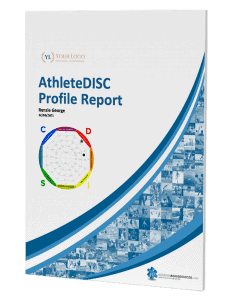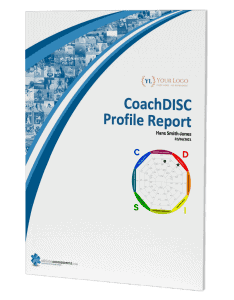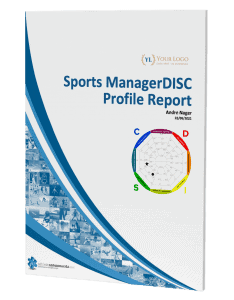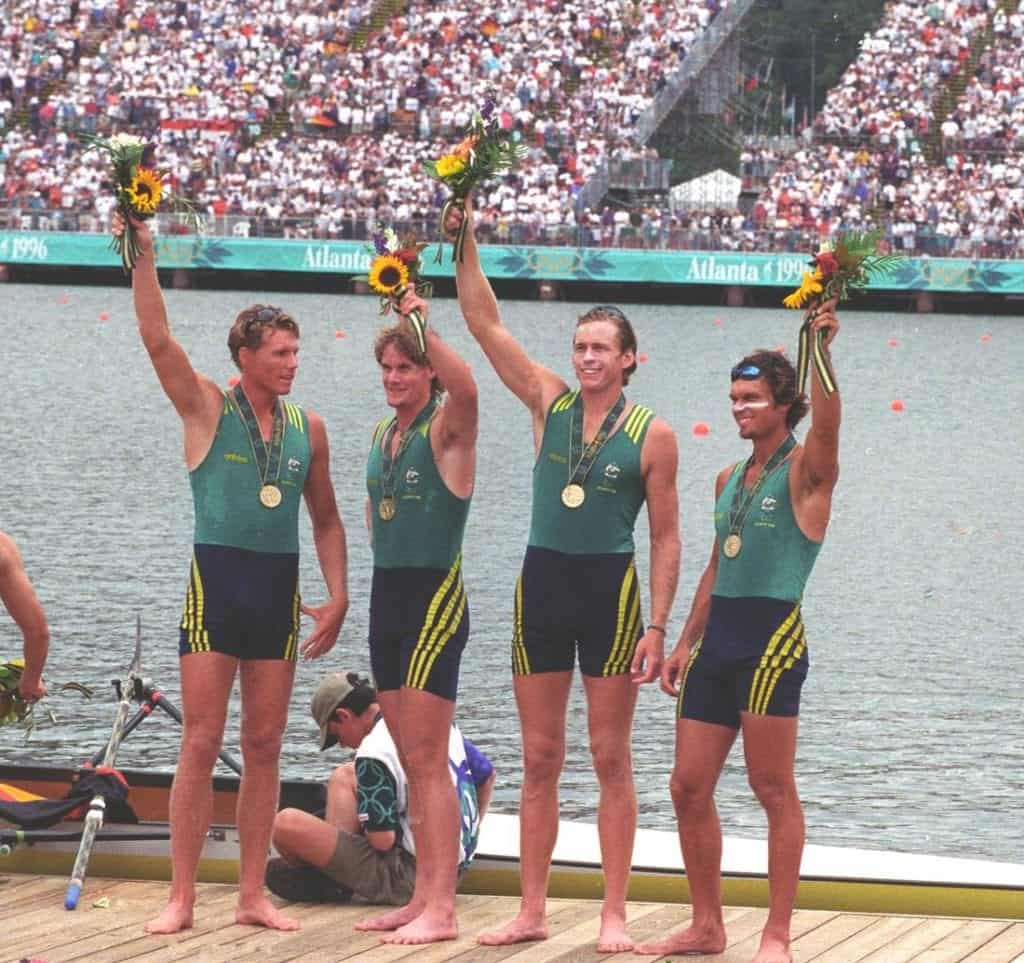Importance of Profiling in Sport
Profiling bridges the gap between ‘potential’ and ‘great’ sports performances
Over the past three decades, sport has become much more scientific. Our understanding of biomechanics, technique and technology has seen previous performance barriers broken time and time again. While our advanced physiological and technical knowledge has produced huge progressions and previously unattainable physical performances, there is a significant ‘knowledge gap’ developing in another area that is also critical to creating results.
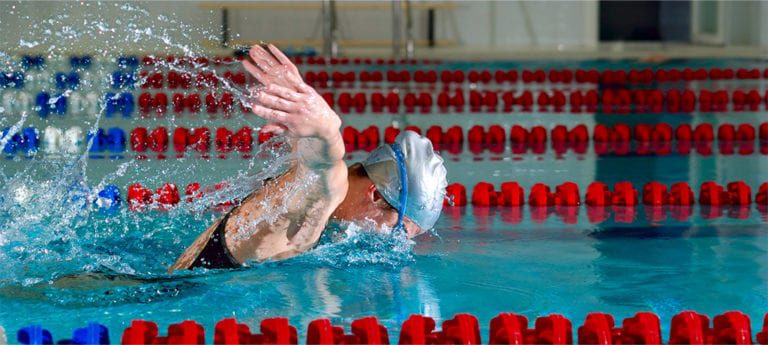
The latest research; including the 2015 Superelite Study and the 2008 Canadian Olympic Study definitively shows that the top two contributors to medal winning sporting performances at the upper level of elite sports are; the quality of the coach-athlete relationship and the athlete’s self-awareness. These aren’t physical factors, they’re people factors.
Utilizing this knowledge gap potentially opens a competitive advantage for those who understand and use their skills in the people side of sport. Profiling is an efficient and effective pathway to developing advanced people skills in sport.
These skills are sometimes referred to as emotional intelligence or relational skills, but what they really are, is self-awareness and the understanding of others. When put into action, the increased skills results in improved communication, higher quality relationships and ultimately, when combined with physical factors the research is clear – exceptional results.
What is Behavioral Profiling?
Simply put, profiling is using a model to understand someone’s behavior.
Profiling is a tool we use to develop self-awareness and knowledge about how behavior is similar or different to others. Building self-awareness is the foundation of emotional intelligence and is used to understand how behavior impacts performance, how an individual works with others and it ultimately improves the results they get.
Your behavior and your results
Your behavior creates your results. Behavioral theory states that your behavior is a function of your personality within a given environment. Many athletes, coaches and sports professionals do not have a good understanding of their behavior.
Often people act out of habit. A habit is a well-rehearsed pattern of behavior. Behaving habitually is like operating on autopilot. Autopilot works well in certain situations, but not all situations. For example, what would happen if you operated on autopilot in an important competition where your well-rehearsed strategies were no longer working? To create a successful result in this situation, you would need to be aware of what behaviors you were currently doing and then be able to make changes or adjustments when you need to.
When we look at the most successful coaches and athletes, one defining quality is their ability to produce winning results in all types of situations and environments.
We suggest if you want different results you need to be aware of and able to change your behavior. It makes sense then that if you do not know how you currently behave (understand your ‘autopilot’), then you cannot make changes. No change in behavior will lead to no change in your results.
Profiling gives you self-awareness (behavioral awareness)
Profiling behavior gives you information about yourself that you may not be consciously aware of. As you become more conscious of your behavior you are more able to control it, thereby gaining more control over your results.
Studies suggest that 75% of making behavioral changes is being self-aware of what you currently do.
Self-awareness is the recognition of our behaviors, our strengths and weaknesses, our beliefs and values, and how this all creates the outcomes we experience in life. High level self-awareness goes deeper into our core beliefs and values, both of which shape our actions, decisions and behaviors.
Developing self-awareness can help us to recognize the specific triggers creating certain emotional and behavioral responses. Self-awareness is also a prerequisite for effective communication and interpersonal relations, as well as for developing empathy for others.
The bottom line is people perform in their chosen fields to a higher level if they have greater levels of self-awareness.
When we develop self-awareness, we can begin to choose the types of behaviors that create great and consistent performances.
The Role of Coaches in Sport
Coaches are at the very heart of sport, and their role is critical to how sport functions at all levels. As mentioned earlier, the research presented at the World Class Performance Conference in London (November 2015) identified the quality of the coach-athlete relationship as a key differentiator between superelite athletes (ones who win multiple metals at multiple Olympics and World Championships) and highly performing athletes. This research echoed the findings of the 2008 Canadian Olympic Study “Own the Podium” which showed coach-athlete relationships significantly impact athlete performance.
Also, the Australian Government recognized the importance of Coaches in its paper ‘Australian Sport: emerging challenges, new directions’:
“The Government would also like to encourage greater recognition of the importance of coaches … Recognition that coaches are role models and mentors needs to be enhanced. It is often the case that a junior athlete’s commitment and enthusiasm for a sport is based almost entirely on the quality of their coach. In many ways Australia’s future sporting success is up to our coaches and training officials.”
This sentiment is reiterated around the world: According to the American Football Coaches Association player survey, 90 percent of players stated, “The coaching staff was very important in determining which college to attend” (AFCA Study 2003).
Traditional coaching and its limitations
Traditional coaching is the type of coaching that focuses on the physical and technical aspect of sport. The relationship between the athlete and the coach is not considered as an important aspect of sporting success. However, it’s now widely accepted that communication and the relationship between coach and athlete plays a critical role in performance and results.
A study published in the Sociology of Sport Journal interviewed high-level teenage athletes who had suffered from ‘burnout’. ‘Poor communication’ was the leading factor of burnout – it created a perceived low level of personal control over the situation in which they trained. Poor communication left them feeling stressed and unable to cope.
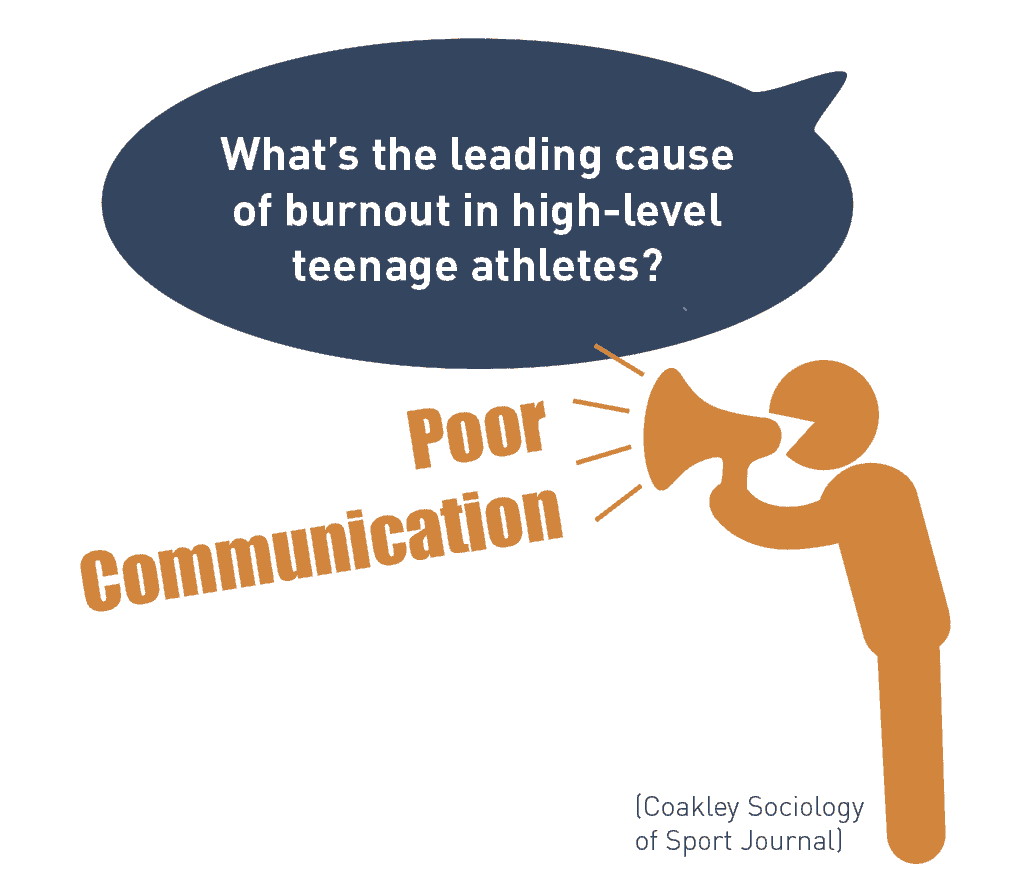
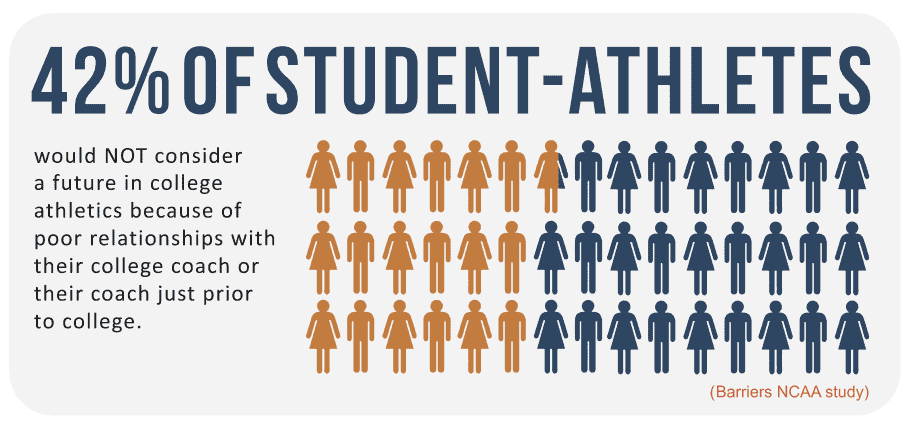
The 2007-2008 Barriers NCAA study found that 42% of the 9000 student athletes surveyed would not consider a future in college athletics because of a poor relationship with their college sports coach or their coach just prior to college. Most sporting programs have a large number of athletes who drop out altogether because of poor coach-athlete relationships. Poor relationships are the result of coaches and athletes not understanding themselves or each other.
In the survey of sports coaches at the Evolution of the Athlete Conference (October 2008), the top three challenges for coaches were identified.
1
50% rated “Understanding individual athlete’s personality and how to best motivate them”
2
46% rated “Personal life balance – managing sport, career, home and social etc.”
3
31% rated “Team/squad dynamics and managing relationships within the team/squad”
“No matter how much you know as a coach, the info is only half of the story. Communicating effectively – getting your message across – is the key to getting the most out of your athletes. To be an effective coach, you need to know your athletes well – which can be difficult and it can take time. You need to find out the best way to communicate with your athletes – what’s most likely to work and what will get the results we all want.” – Coach Gary Lynagh, Olympian and 3-time World Champion
Most coach training remains skills and technique focused. The problem with this is that it leaves little time and energy to focus on critical issues including:
- Understanding individual athletes and team dynamics
- Developing stronger relationships
- Improving communication
- Meeting needs and understanding limitations
The importance of profiling for coaches
“Exceptional coaching relies on having the information to enable you to tailor your coaching style for each athlete and the benefit of the team” – Bo Hanson, four-time Olympian and founder of Athlete Assessments
‘The Best Coaches’
In the 2008 Evolution of the Athlete Conference survey, coaches were asked ‘What characterizes a phenomenal coach?’ The results showed how important the athlete coach relationship is.
1
2
3
61% said phenomenal coaches focus not only on the technical and physical aspect of the athlete but see the athlete as a ‘whole person’ with a life outside of the sporting environment.
55% of coaches also stated that being able to teach and having strong communication skills was critical.
33% suggested coaches must always be looking for ways to improve themselves, their understanding and be innovative in their approach to creating better outcomes for their athletes.
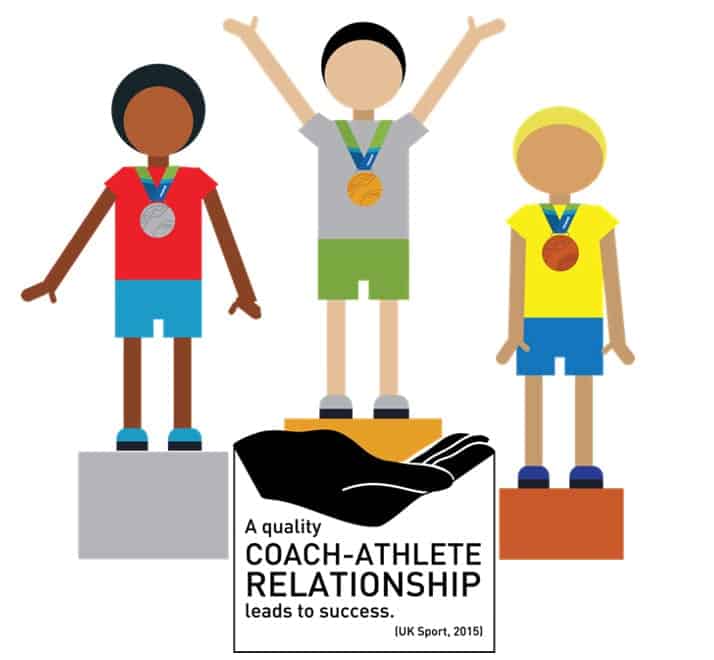
How to become a phenomenal coach
Becoming self-aware, by undertaking sports specific behavioral profiling, is the surest way for coaches to develop a comprehensive understanding of both themselves and each of their athletes. Coaches become self-aware by learning about their own coaching style, communication style, strengths and limitations. When athletes complete a behavioral profile, coaches know with certainty their athletes’ individual personalities, motivators, preferred communication style, most effective training environments and much more.
Self-awareness is the cornerstone of success. With this knowledge coaches are enabled to adapt their behaviors becoming vastly more effective, with excellent communication and relationships with their athletes. From here, both coach and athlete will start seeing improved performance, consistently. The door to realizing their true potential will be wide open.
Not only for coaches
Self-awareness is as critical for individual athletes, athletes in teams and sports professionals as it is for coaches. Whether your team is made up of 2 people, 20 or 200, the way those people interact – the team dynamics or ‘chemistry’, is easier to improve or build upon with self-aware people. Regardless of the individual’s role, self-awareness delivers enormous benefits by improving teamwork, communication skills and leadership.
While often dismissed by others as the ‘soft side’ of sport or business, getting the ‘people side’ right results in the best performances possible.
DISC Profiling is the key to getting the ‘people side’ right in sport
The primary purpose of DISC Profiling is to develop self-awareness and provide a framework to understand others so that you can build effective relationships. Its applications range from improving team effectiveness, communication and interpersonal relationships, to leadership development, recruitment and professional development plans.
Athlete Assessments’ DISC Profiles use proven techniques based on decades of behavioral research and are created and used specifically for sport. The CoachDISC Profile is specifically for coaches, there is the AthleteDISC Profile for athletes and the Sports ManagerDISC Profile for sports administrators, managers and other professionals. Each assessment starts with a 12-minute online survey and results in a DISC Profile Report. The personalized report details the individual’s personal style, strengths, limiting behaviors, communication preferences and the ideal environment to enhance performance.
Get practical strategies to coach athletes to their individual needs. Know the behaviors producing their best performances for greater consistency when it counts the most. Help your athletes build self-awareness to make improvements and take greater responsibility for their behavior, on and off “the field”. Find out more!
The distinguishing factor of great Coaches is their constant pursuit for the competitive edge, in their athletes and themselves. Coaches will better understand their coaching styles (and their fellow-Coaches’ and staff) to find new ways to further improve their coaching and communication with athletes and others. Their coaching results will only further improve, guaranteed! Find out more!
Provide your people with a comprehensive understanding of themselves and those they work with. It quickly improves communication, working relationships and ultimately results. Use with recruitment, as a foundation for professional development plans or part of a team building exercise. Find out more!
Learn more about Athlete Assessments
DISC Profiling
Learn how to master the people side of sport using DISC Profiling...
What We Do
We specialize in helping our clients create and sustain winning results...
Resources
Stay at the forefront with access to our resources, articles and videos


